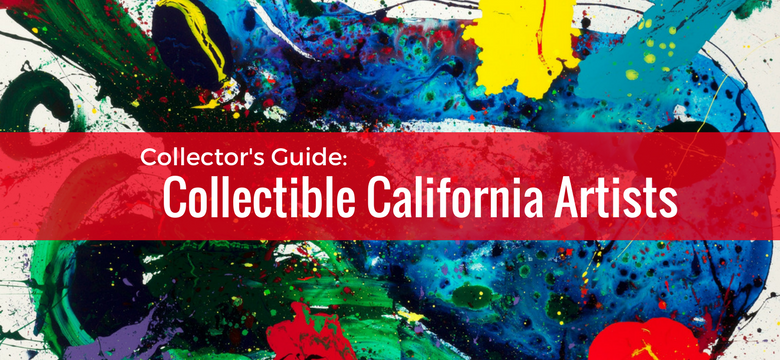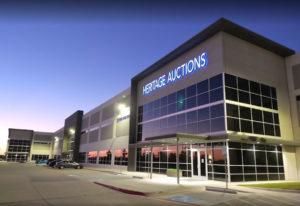
Los Angeles has and continues to be a key player in the international art scene. Most recently, there has been an influx of new galleries and institutions popping up across the vast city and artists moving from New York. Ann Philbin, the Director of the Hammer, said in an interview with the New York Times, “What makes a city culturally exciting is not how many collectors, galleries or institutions there are. It’s how many artists are working there. Artists create and energize an art scene. That has happened in this city over the last decade and a half.”
In the 1960s, Los Angeles had very few galleries, a small group of contemporary art collectors, and no significant art institution until the opening of LACMA in 1965 (San Francisco was considered the cultural capital of the West Coast) There were, however, a group of artists living and working in Los Angeles that made a significant impact on Contemporary Art.
John Baldessari
Considered one of the founders of Conceptual Art, John Baldessari has been in over 1,000 group shows and featured in more than 200 solo exhibitions in his 60 year career. Born in National City, CA on June 17, 1931, Baldessari moved to Los Angeles shortly after he completed his famous The Spectator is Compelled…, 1967-68. The work depicts Baldessari staring down the street, which resembles the traditional painting perspective, and the words “The spectator is compelled to look directly down the road and into the middle of the picture.”
Baldessari’s work often incorporates a photograph, text or a bright geometric shape that emits a face or obstructs an image. “I could never figure out why photography and art had separate histories. So I decided to explore both,” he said. Over the years, he has been an inspiration to major artists such as Barbara Kruger, Cindy Sherman and David Salle, and despite his tenure, he continues to bring a fresh and relevant perspective to the contemporary landscape.
JOHN BALDESSARI (American, b. 1931)
Nose/Silhouette: Orange, 2010
Lithograph and screenprint in colors
18 x 14 inches (45.7 x 35.6 cm)
SP 4/5 (aside from an edition of 50)
Signed, dated, and numbered in pencil with the blindstamp of the publisher
Published by Gemini G.E.L., Los Angeles
Sold for: $2,000
Ed Ruscha
Ed Ruscha is the quintessential California artist. Although he was born in Nebraska, his photographs, drawings, paintings, and books record the ironies and iconic characteristics of Los Angeles life. Vetoing the Abstract Expressionist style that was prominent at CalArts, Ruscha began painting one-syllable words like “Oof” and “Boss”. “I like the idea of a word becoming a picture, almost leaving its body, then coming back and becoming a word again,” he said. “I see myself working with two things that don’t even ask to understand each other.”
Although Ruscha came into the scene during the Pop Art movement of the 1960s, his work holds characteristics of Dada and Surrealism and played an essential role in the development of Conceptual Art. Today, Ed Ruscha maintains a studio in the desert by Palm Springs, which inspired him at a young age to depict the west in a romantic, yet contemporary fashion.
ED RUSCHA (American, b. 1937)
Hollywood, 1968
Screenprint in colors
12-3/8 x 40-3/8 inches (31.4 x 102.6 cm)
Ed. 9/100
Signed, dated and numbered in pencil in bottom margin
Sold for: $87,500
ED RUSCHA (American, b. 1937)
Sunset, Fairfax, 2003
Acrylic on paper
13-1/2 x 22-1/4 inches (34.3 x 56.5 cm)
Signed and dated lower right: Ed Ruscha 2003
Sold for: $109,375
Sam Francis
Known as one of the first post-World War II artists to develop an international reputation, Sam Francis’ paintings, works on paper, prints and monotypes are part of renowned museum collections. Francis traveled extensively, developing a style that referenced the abstract expressionism of New York, Japanese culture, French Impressionism and color field painting. He was also influenced by the abstract expressionist Mark Rothko, and became associated with other artists who developed a curiosity in the expressive use of color such as Joan Mitchell and Helen Frankenthaler. Francis moved to Los Angeles in the 1960s, where he began leaving large white spaces on his canvases and adding strong lines and minimal amounts of color. In the 1970s, he reasserted his interest in color by created Fresh Air pictures. This strategy involved adding swirls, splatters, and drips of vibrant colors to wet paint and applied with a roller.
Throughout his career, he maintained studios in Northern and Southern California, New York, Mexico City, Tokyo, and Bern. Sam Francis was born in San Mateo, CA and died in 1994 in Santa Monica.
SAM FRANCIS (American, 1923-1994)
Untitled, 1988
Acrylic on canvas
79-1/2 x 120 inches (201.9 x 304.8 cm) [painting has also been exhibited and documented in the vertical orientation]
Estate stamp verso
Sold for: $515,000
Mary Corse
Born in Berkeley, Mary Corse moved to Los Angeles and was an integral part of the 1960s Light and Space Movement. Best known for her minimal, monochromatic paintings, such as Untitled (White Knight), Corse uses an innovative technique to explore the relationship between perception and the material. By mixing acrylic paint and tiny glass beads called microspheres (which are used in lane dividers on the freeways), she is able to illuminate her canvases. Based on the light shining on the canvas, various brushworks and textures are heightened or flattened. Although minimal, Corse’s work evokes varying feelings amongst its viewers based on each individuals experience with and perception of color. Throughout her career, Mary Corse has explored the ways our brains respond when light reacts to cells in our eyes.
An exhibition of Corse’s work opens at Lehmann Maupin in New York on Thursday, September 7.
MARY CORSE (American, b. 1945)
Untitled, 1997
Glass microspheres in acrylic on canvas
48 x 48 inches (121.9 x 121.9 cm)
Signed and dated verso: Mary Corse, 1997
Sold for: $59,375
Mary Corse (b. 1945)
Untitled (White Knight), 1986
Glass microspheres in acrylic on canvas
81 x 81 inches (205.7 x 205.7 cm)
Sold for: $40,000
Visit our fine art department to view upcoming auctions and to browse our auction archives.








Leave a Comment